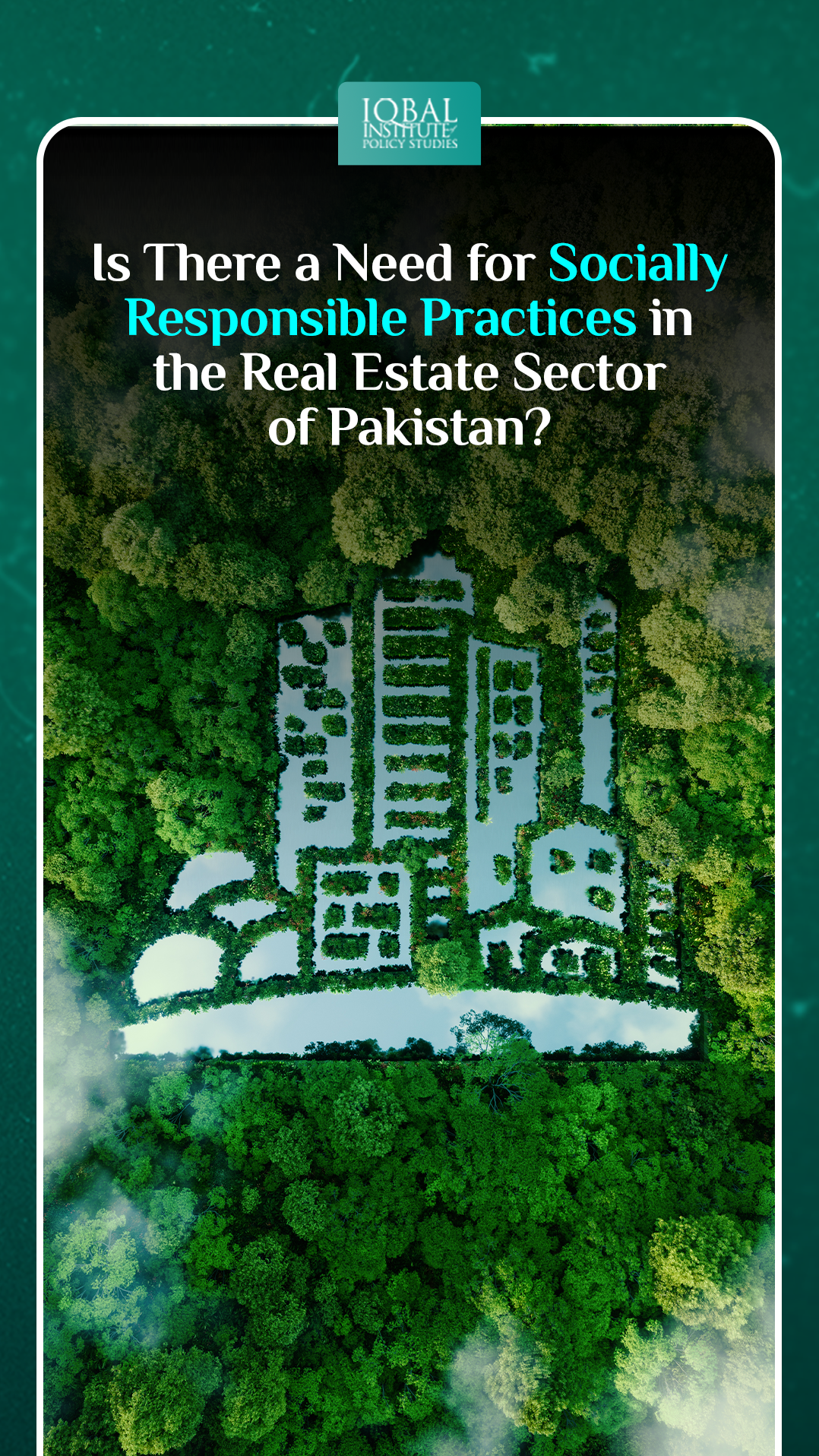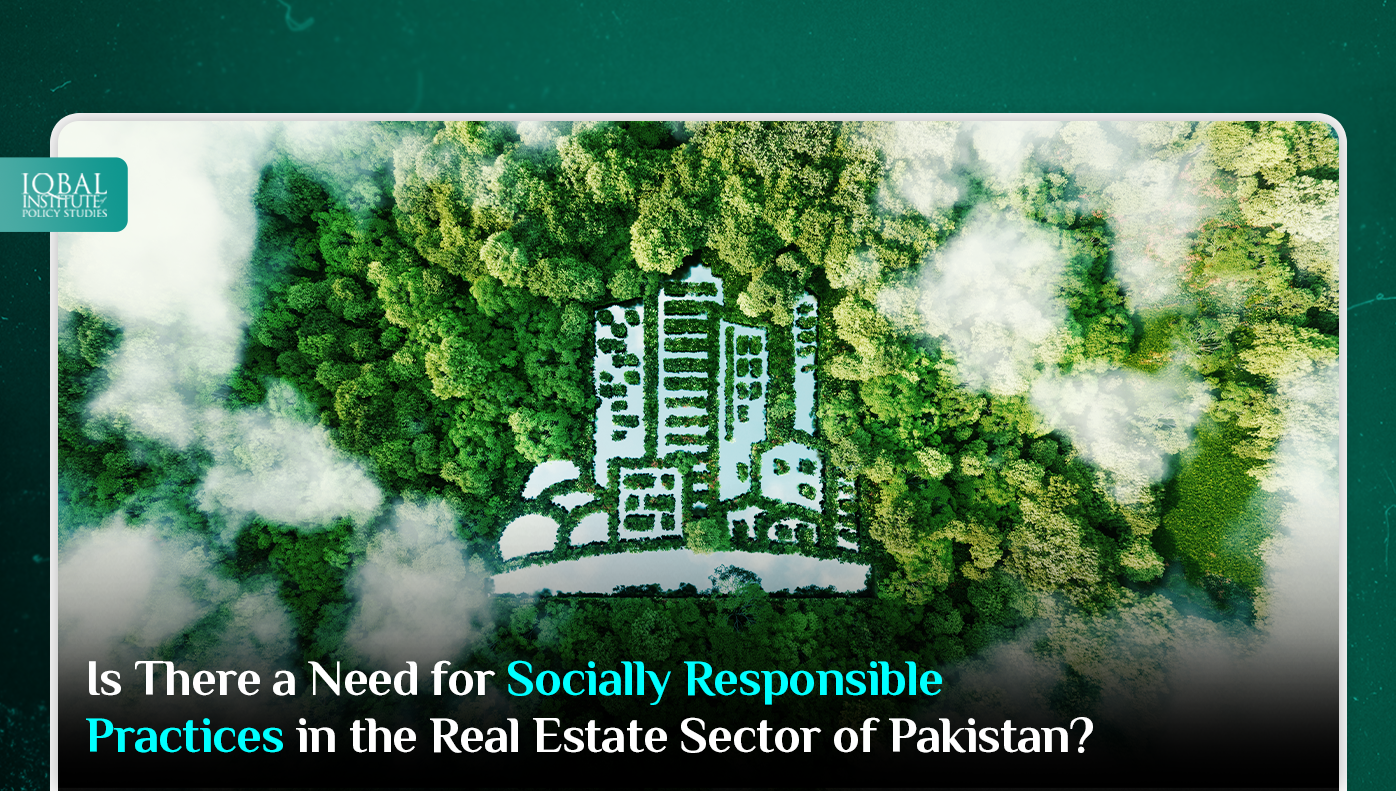In today’s global landscape, there is increasing recognition of socially responsible practices across various industries. Real estate, as a significant sector influencing communities and environments, is no exception. Owning to acute climate changes, communities are becoming more cognizant of the social and environmental repercussions of development. Thus, real estate corporations are seeing the need to go beyond profitability and embrace a wider commitment to societal well-being. Embracing socially responsible real estate practices has become paramount to not only contribute to the greater good but also ensure the long-term success of companies. Moreover, sustaining ethical business practices can potentially establish a more prosperous and inclusive future for everybody and can potentially redefine the way people approach real estate, creating spaces that not only meet their requirements but also assist in creating a more equitable and sustainable world.
What are the Benefits?
Brand Identity and Value
Real estate enterprises that prioritise socially responsible practices gain a favourable reputation among stakeholders. They develop a strong corporate identity that connects with environmentally aware customers, investors, and the general public by establishing a commitment to social welfare, preservation of the environment, and ethical conduct.
Cost-Effective
Socially conscious real estate practises can have long-term financial advantages in addition to being ethically admirable. By lowering operational costs, consuming less energy, and raising property values, investments in sustainable development, energy efficiency, and green technologies can save money. Furthermore, socially responsible companies are more likely to draw ethical investors and obtain funding with favourable terms.
Reduction in Carbon Footprints
Socially responsible real estate practices significantly contribute to environmental preservation by utilising sustainable and green practices to lessen their carbon footprints, protect resources, and aid in climate change mitigation actions that are harmonious with international environmental goals.
Benefits Communities
Positive effects on local communities are one of the major advantages of socially responsible behaviour. Real estate firms that place an emphasis on projects for affordable housing and community well-being promote social inclusion and advancement. These businesses improve inhabitants’ overall quality of life by building lively, sustainable neighbourhoods that foster social cohesion and economic growth.
Competitive Edge
As customers’ awareness of social and environmental issues grows, they actively look for businesses that share their values. Real estate businesses can stand out from the competition and draw in a wider clientele by putting a priority on sustainability, community involvement, and ethical business practices.
Lower Risks
Socially responsible practices help real estate companies mitigate potential risks and liabilities. By adhering to ethical guidelines and regulatory frameworks, companies minimize legal and reputational risks. Additionally, integrating sustainability measures reduces exposure to environmental risks and future-proof investments against changing market dynamics.
Skilled Workforce Attraction and Retention
Socially responsible real estate practices can allow companies to attract or recruit skilled employees who are passionate about making a positive effect by demonstrating a commitment to social responsibility. This promotes an environment of innovation, collaboration, and employee pleasure, which drives long-term success.
What are the Drawbacks?
Expensive
Using socially conscious methods in real estate can mean paying more upfront. Investments in environmentally friendly building materials, energy-saving technologies, and community development programmes might need more money. This can be difficult for businesses, especially smaller ones with tighter budgets, as they try to strike a balance between their desire to be socially responsible and their ability to make a profit.
Return on Investment (ROI) Issues
The financial returns may not always match those of conventional investments. The inclusion of sustainability measures and community-focused activities may necessitate a longer payback period, which may affect the projects’ financial feasibility and appeal to investors expecting more rapid returns on their investments.
Complex Regulatory Procedure
Socially responsible actions require adhering to many laws and norms. Real estate corporations have to manage intricate regulatory frameworks relating to community engagement standards, affordable housing laws, and environmental certifications. Planning and developing a project may become more complex and take more time and resources if certain regulations are to be met.
Limited Demand
Although there is an increasing demand for socially responsible real estate, some markets may still consider it to be somewhat niche. Geographical differences in the inclination for sustainable and socially conscious properties could make it difficult to draw in a larger clientele or charge more for these endeavours, especially in countries like Pakistan where such practices are less known and valued.
Greenwashing Perception
The practice of advertising environmental and social responsibility without supporting those claims with actual deeds is known as “greenwashing.” People might criticise real estate businesses’ socially responsible actions by considering it a faux marketing goal. To change this view, social responsibility initiatives must be authentic and based on trust to ensure brand recognition.
Why Does Pakistan Need Socially Responsible Real Estate Practices?
Global warming is threatening many developing nations worldwide, including Pakistan. The country has faced an acute housing crisis, energy and water shortage due to pressing climatic conditions. The contribution of Pakistan to worldwide GHG emissions is only 0.8% (Lin & Raza, 2019) and is among the list of top ten nations severely affected by climate change over the last 20 years (Rupert, 2022). One of the many responsible factors for this is the real estate industry. For instance, buildings are responsible for 38% of global greenhouse gas emissions(UN environment programme, 2020). Also, Pakistan is home to 20,000 brick kilns, accounting for 20% of global black carbon emissions. (secretariat, 2018).
Furthermore, by 2030, more than half of Pakistan’s population is anticipated to reside in urban areas with the country’s annual urban population growth rate of 3% (LSE, 2017). The curve between housing demand and supply as a result is growing quickly. Pakistan now has a deficit of 10 million housing units, and the number is growing yearly. (Durre-e-Nayyab, 2022). Moreover, 40.1% of the population is living in slums due to inequality, unemployment, and lack of accommodation (Trading Economics, 2022). To address these socioeconomic issues, Pakistan must implement socially responsible practices in its real estate sector. The real estate industry can support inclusive urban planning, affordable housing, sustainable development, and job creation while also enhancing its reputation internationally and luring responsible investment for a more promising and equitable future.
Conclusion
In today’s global landscape, implementing socially conscious practices is not an option anymore; it is a requirement. Real estate businesses must place a high priority on community welfare, environmental sustainability, ethical corporate conduct, supporting local economies, and participating in charitable activities. Companies can leave a lasting legacy while improving society at large by proactively adopting these practices. Companies that understand their role in promoting social progress and sustainable development will control the future of real estate.
This article is written by Haneen Gul. Haneen is a Research Analyst at the Iqbal Institute of Policy Studies (IIPS)
References
Bhutta, Z. (2022, July 8). Real estate group seeks long-term policy. The Expess Tribune. Retrieved from https://tribune.com.pk/story/2365216/real-estate-group-seeks-long-term-policy
Durre-e-Nayyab. (2022). Pakistan Institute of Development Economics. Retrieved from pide.org: https://pide.org.pk/research/the-assumed-shortage-of-housing-in-pakistan/
Lin, B., & Raza, Y. M. (2019, May 10). Analysis of energy related CO2 emissions in Pakistan. Science Direct. doi:https://doi.org/10.1016/j.jclepro.2019.02.112
LSE. (2017, February 15). Retrieved from https://blogs.lse.ac.uk/southasia/2017/02/15/the-six-biggest-challenges-facing-pakistans-urban-future/
Rupert, J. (2022, September 29). USIP. Retrieved from https://www.usip.org/publications/2022/09/pakistan-presses-us-lead-global-response-climate-disasters
secretariat, C. (2018, April 10). Climate Clean Air Coalition. Retrieved from ccacolition.org: https://www.ccacoalition.org/en/news/pakistan-moves-toward-environmentally-friendly-and-cost-effective-brick-kilns
Trading Economics. (2022). Retrieved from tradingeconomics: https://tradingeconomics.com/pakistan/population-living-in-slums-percent-of-urban-population-wb-data.html#:~:text=Population%20living%20in%20slums%20(%25,compiled%20from%20officially%20recognized%20sources.
UN environment programme. (2020, December 16). Retrieved from https://www.unep.org/news-and-stories/press-release/building-sector-emissions-hit-record-high-low-carbon-pandemic



Leave a Reply